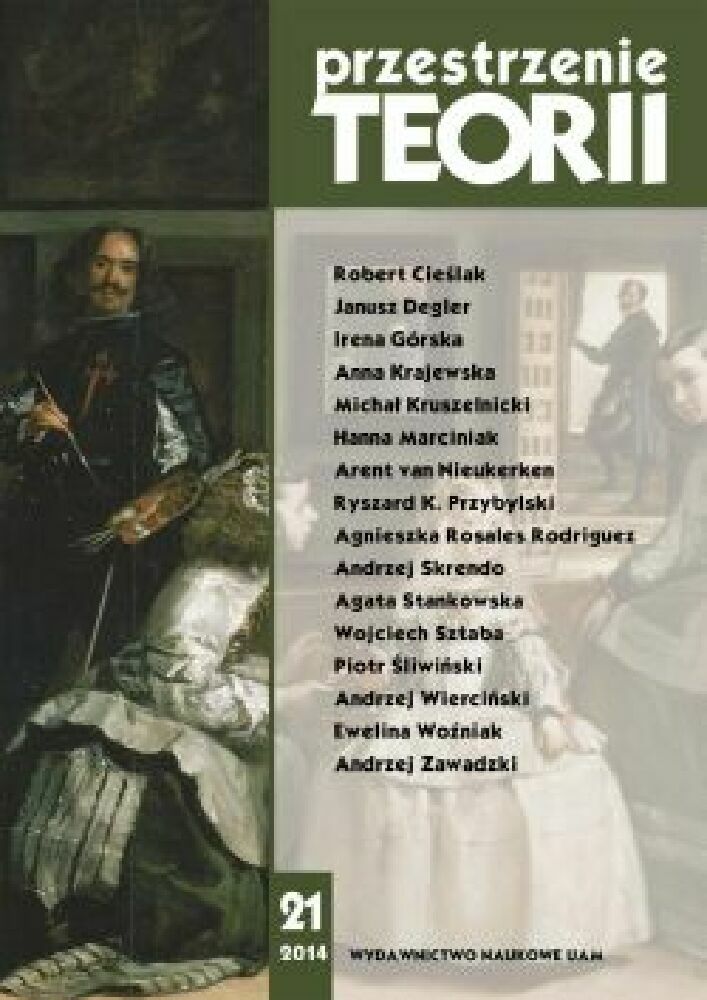Abstrakt
Carnal hermeneutics shows that pre-thematic bodily hermeneutics can complement cognitive hermeneutics. The thematization of sacramental imagination is an essential part of such an approach. Carnal hermeneutics finds new ways of showing how imagination inhabits our bodies and reflects on the emancipatory possibilities that are hidden in the process of maintaining and crossing the various boundaries that constitute our identity. Carnal reading is both reception and creation, i.e., it is not a reading into something but a reading from something. The act of interpreting Paul Celan’s Tenebrae is an exercise in a diacritical hermeneutics of communion and prayer, which contributes to the self-awakening of existence by elucidating the fundamental structures of our understanding of being.Bibliografia
Pismo Święte Starego i Nowego Testamentu w przekładzie z języków oryginalnych, wyd. 5, Poznań 2000.
S. Weil, The Notebooks of Simone Weil, przeł. A. Wills, New York 2004, s. 240.
H.-G. Gadamer, Truth and Method, 2nd rev. ed., trans. J. Weinsheimer, D.G. Marshall, New York 2004, s. 136.
P. Celan, Tenebrae, [w:] tenże, Gesammelte Werke, vol. 1, ed. B. Allemann, S. Reichert, Frankfurt am Main 1983, s. 163.
Th.W. Adorno, Prismen. Kulturkritik und Gesellschaft, München 1963, s. 26.
R.L. Rubinstein, After Auschwitz: Radical Theology and Contemporary Judaism,
Indianapolis 1966
H.Jonas, Der Gottesbegriff nach Auschwitz: Eine jüdische Stimme, Frankfurt am Main 1987.
B. Petersen, Theologie nach Auschwitz?: Jüdische und christliche Versuche einer Antwort, Berlin 1996; Als Gott weinte: Theologie nach Auschwitz, hrsg. M. Görg, M. Langer, Regensburg 1997.
Christologie nach Auschwitz, hrsg. J.B. Metz, J. Manemann, Münster 2001.
H. Weinrich, Befangenheit vor Paul Celan: Der Poet des Schweigens und die Beredsamkeit seiner Interpreten, „Die Zeit”, 23.07.1976, s. 38.
M. Heidegger, Sein und Zeit, Tübingen 1993, s. 38.
List papieża Benedykta XVI do arcybiskupa Freiburga Roberta Zollitscha, <http://www.vatican.va/holy_father/benedict_x vi/letters/2012/documents/hf_ben-xvi_let_20120414_zollitsch_ge.html>, dostęp: 9.07.2014.
Licencja
Autorzy
Autorzy tekstów przyjętych do publikacji w czasopiśmie „Przestrzeniach Teorii” są zobowiązani do wypełnienia, podpisania i odesłania na adres redakcji umowy o udzielenie nieodpłatnej licencji do utworów, z zobowiązaniem do udzielania sublicencji CC.
Zgodnie z umową, autorzy tekstów opublikowanych w czasopiśmie „Przestrzeniach Teorii” udzielają Uniwersytetowi im. Adama Mickiewicza w Poznaniu niewyłącznej i nieodpłatnej licencji oraz zezwalą na użycie sublicencji Creative Commons Attribution-NonCommercial-NoDerivatives 4.0 International (CC BY-NC-ND 4.0).
Autorzy zachowują prawa do dalszego, swobodnego rozporządzania utworem.
Autorzy, którzy wykorzystują w swoim tekście cudze utwory (np. ilustracje, fotografie) proszeni są o dostarczenie do redakcji czasopisma zgodę na publikację od uprawnionych podmiotów.
Użytkownicy
Zainteresowani użytkownicy internetu uprawnieni są do korzystania z utworów opublikowanych po 2015 roku „Przestrzeniach Teorii” tylko w calach niekomercyjnych, pod następującymi warunkami:
- uznanie autorstwa - obowiązek podania wraz z rozpowszechnionym utworem, informacji, o autorstwie, tytule, źródle (odnośniki do oryginalnego utworu, DOI) oraz samej licencji;
- bez tworzenia utworów zależnych - utwór musi być zachowany w oryginalnej postaci, nie można bez zgody twórcy rozpowszechniać np. tłumaczeń, opracowań.
Do wszystkich tekstów opublikowanych przed 2015 r. prawa autorskie są zastrzeżone.
Inne
Uniwersytet im. Adama Mickiewicza w Poznaniu zachowuje prawo do czasopisma jako całości (układ, forma graficzna, tytuł, projekt okładki, logo itp.).
